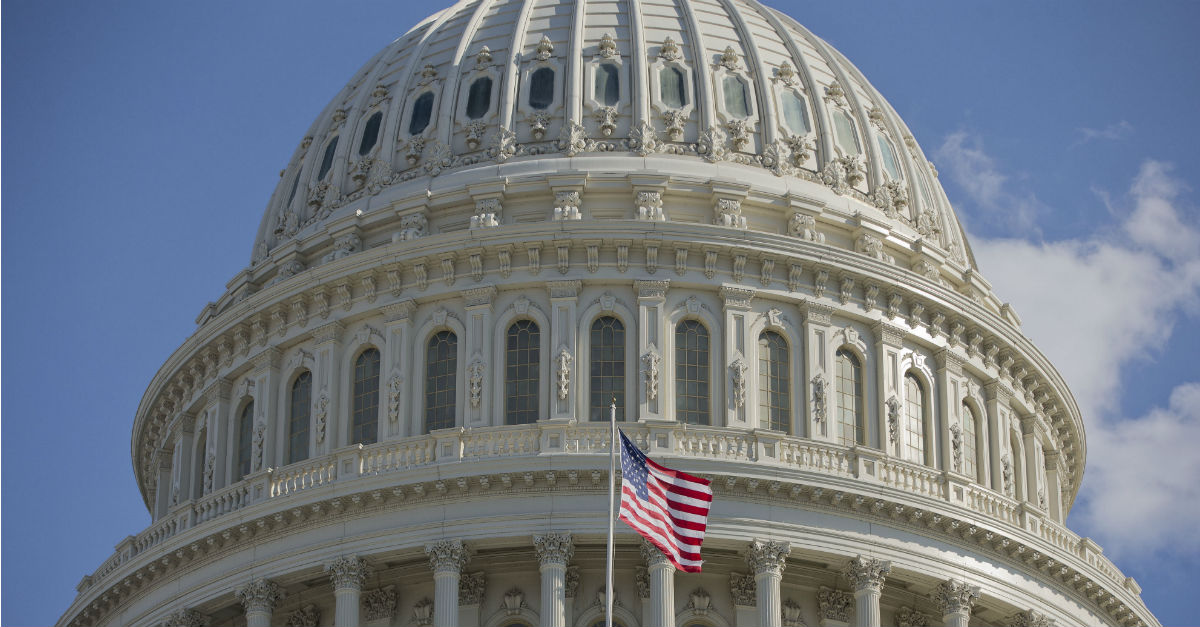Capitol Hill is reportedly abuzz with sexual misconduct rumors and the public relations panic it entails. The gossip, per Politico, is that a reputable news outlet has a list of upwards of 20 lawmakers from both sides of the aisle who have been credibly accused of sexual harassment or assault.
Videos by Rare
Five members of Congress—John Conyers (D-Mich.), Blake Farenthold (R-Texas), Trent Franks (R-Ariz.), and Ruben Kihuen (D-Nev.) in the House and Al Franken (D-Minn.) in the Senate—have resigned or canceled their re-election campaigns over sexual misconduct allegations so far, which means there could be more than 15 exposés yet to come.
This wouldn’t surprise me in the least. Maybe it’s because then-President Bill Clinton’s affair with his 22-year-old intern, Monica Lewinsky, is among my earliest political memories, or maybe I’m just cynical. But if anything, I’d be a little shocked if it’s only 20, a mere 0.4 percent of Congress’ 535 members in both houses.
That isn’t to suggest there’s a predator lurking around every congressional corner, or that sexual misconduct is in any sense unique to Washington. Plenty of lawmakers lead exemplary personal lives, and plenty of sexual predators are not involved in politics, as this fall’s series of allegations in the entertainment industry has made more than clear. But is it unreasonable to suppose that those who seek increasingly unfettered political power might also be disproportionately likely to abuse their power over others in their professional and private lives? One is surely not causal of the other, but a correlation wouldn’t shock.
If anything, such a correlation is perhaps to be expected. As much as we might wish otherwise when our favorite politicians’ careers are on the line, corruption of character can rarely be compartmentalized, and the more powerful Washington becomes, the more likely it is to attract those who seek a share of that power for themselves more than they seek to serve the public.
Rotting meat attracts flies, so we can’t set out rotting meat and then be astonished at how gross the flies are.
This sort of connection has been well-documented in the rise of President Trump. In the two centuries since the Constitution’s adoption, the office of the presidency has gradually exchanged its early form as a relatively humble administrative role for the overgrowth authority of the modern imperium. That’s precisely why the role appeals to Trump, whom one cannot imagine desiring the comparatively constrained office filled by presidents of decades past. The presidency today, writes the Cato Institute’s Gene Healy, “looks nothing like the modest, businesslike, law-governed executive the Framers envisioned,” and Trump would not want it if it did.
Proportionately, of course, Congress has ceded power to the White House over the years, particularly where war authority is concerned. But in absolute terms, legislative power, too, has increased over time. (I primarily have Washington in mind here, but similar dynamics are in play at lower levels of government as well.) Lawmakers today regulate more aspects of our lives than ever before. The federal criminal code alone details more than 4,500 crimes, and that’s on top of tens of thousands of federal agency rules whose violation can be treated as a criminal offense.
In other words, to be a member of Congress in 2017 is to have remarkable power over Americans from cradle to grave. Is it any wonder our congressional elections attract a lot of super nasty flies?
Gore Vidal famously observed that any “American who is prepared to run for president should automatically, by definition, be disqualified from ever doing so.” His argument was that if you actually want this obscene level of power, you’re almost certainly the type of person who should not be trusted to wield it.
If that’s true not just of the presidency but of all powerful political offices—and, hyperbole aside, I suspect it generally is—then a healthy skepticism of lawmakers’ ethics, sexual and otherwise, is well-warranted. We shouldn’t unfairly convict politicians (or anyone) in the court of public opinion, but neither should we assume, absent toothy accountability and transparency measures, that they are trustworthy.
That means we need to get rid of institutional incentives for bad behavior, like the practice of paying congressional sexual harassment settlements with tax dollars and then keeping the whole thing secret from the very taxpayers footing the bill. It means we need to be extra careful in our political system to avoid insulating predators from “the consequences of their actions and keep[ing] their accusers quiet.” It means we need to stop merely flicking the flies off the rotten meat and invest in the refrigerator of a less powerful Washington instead.



